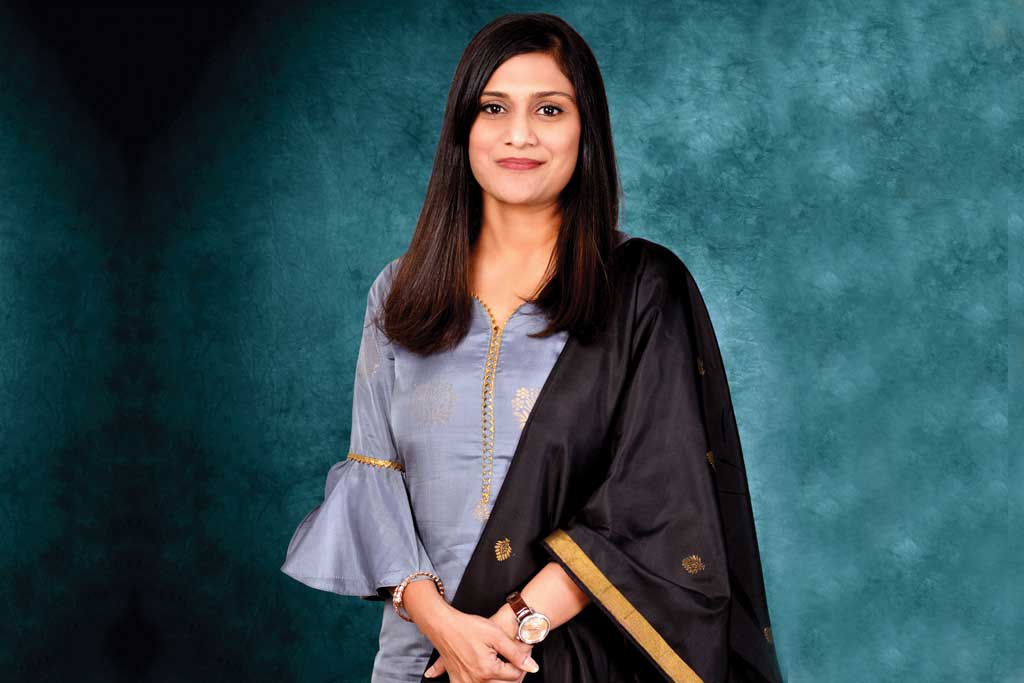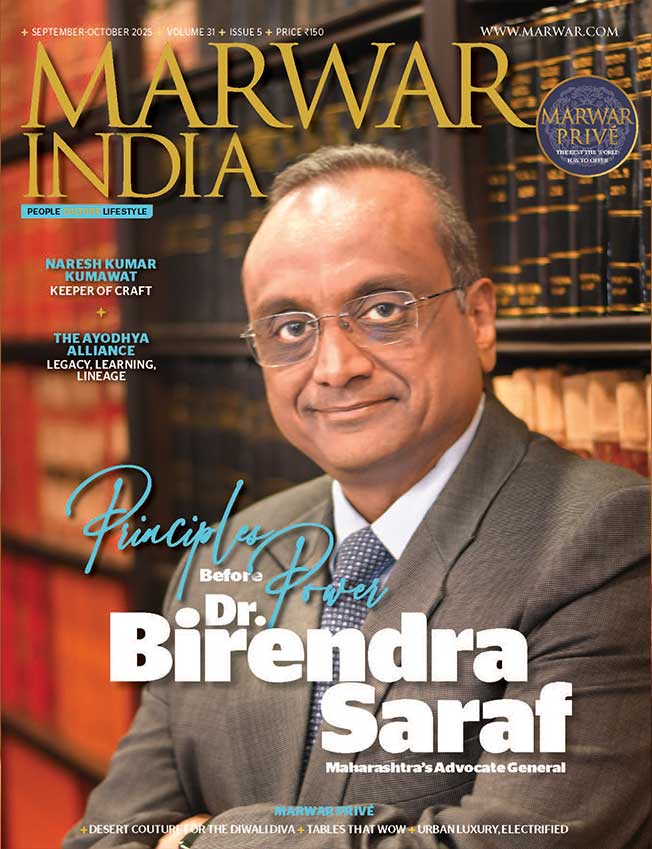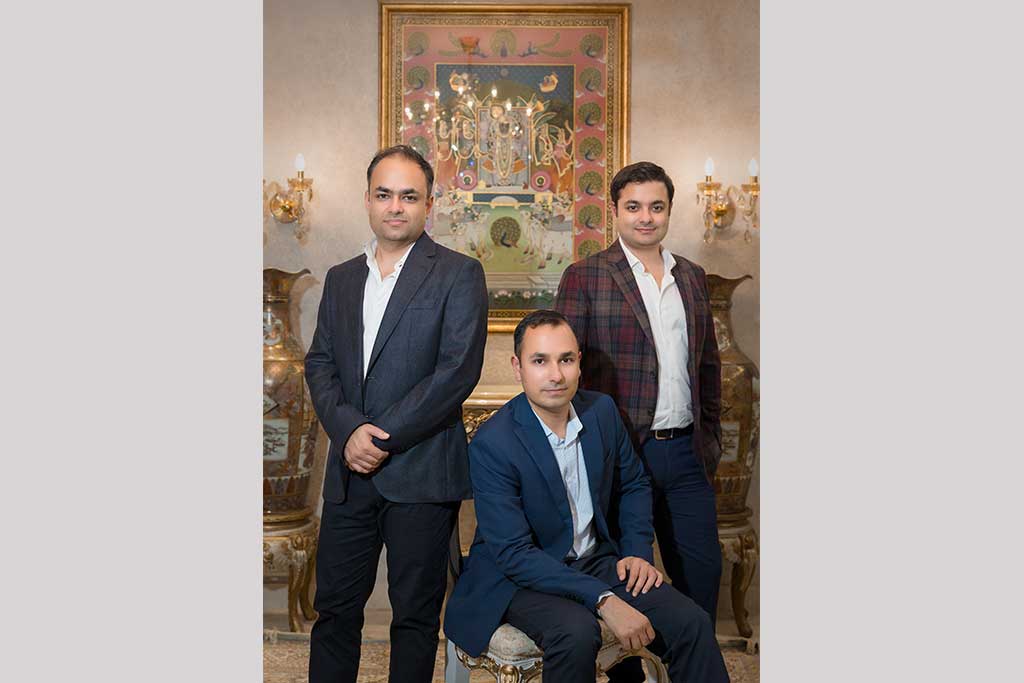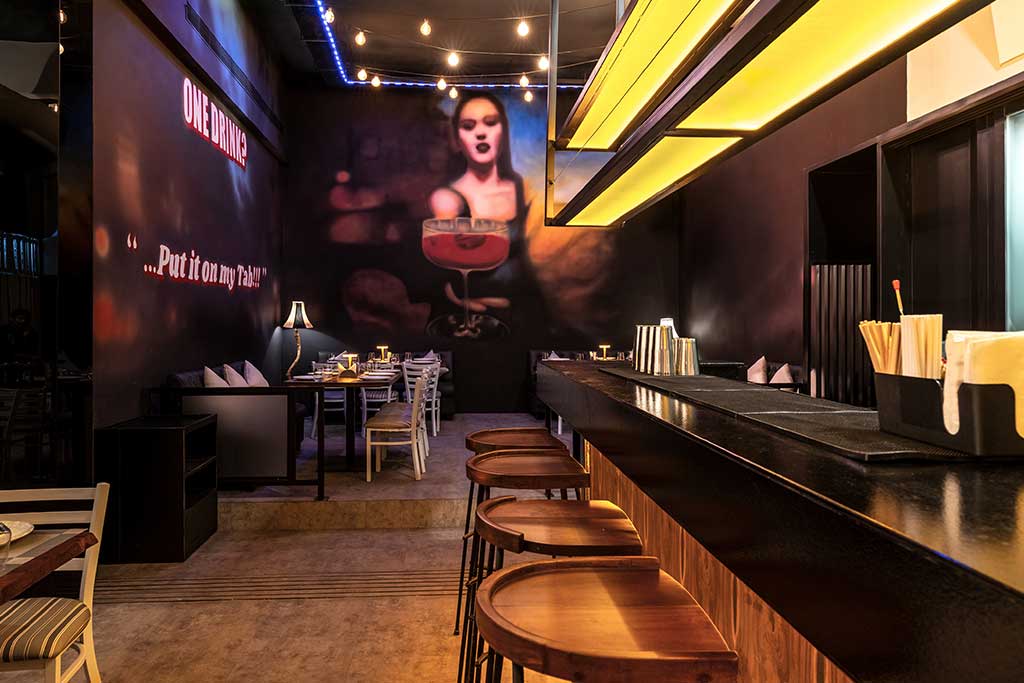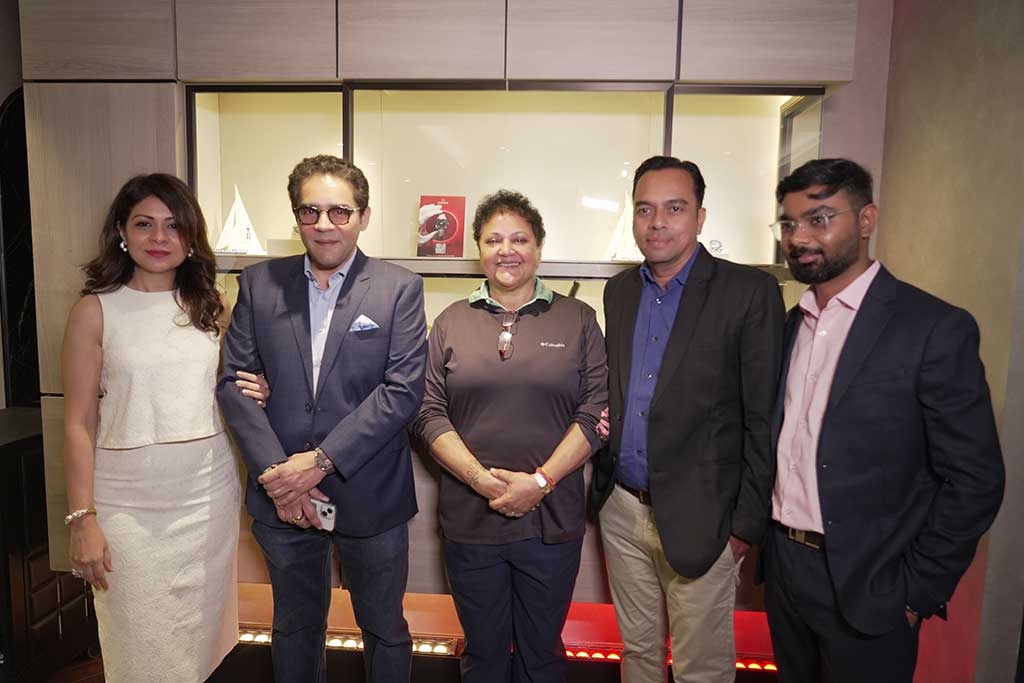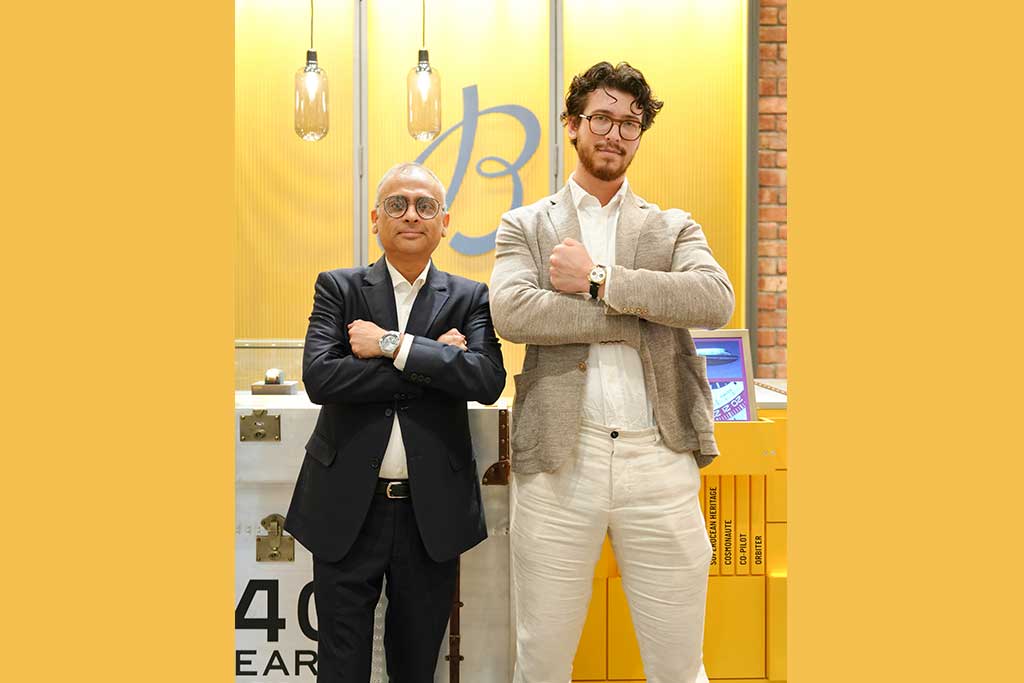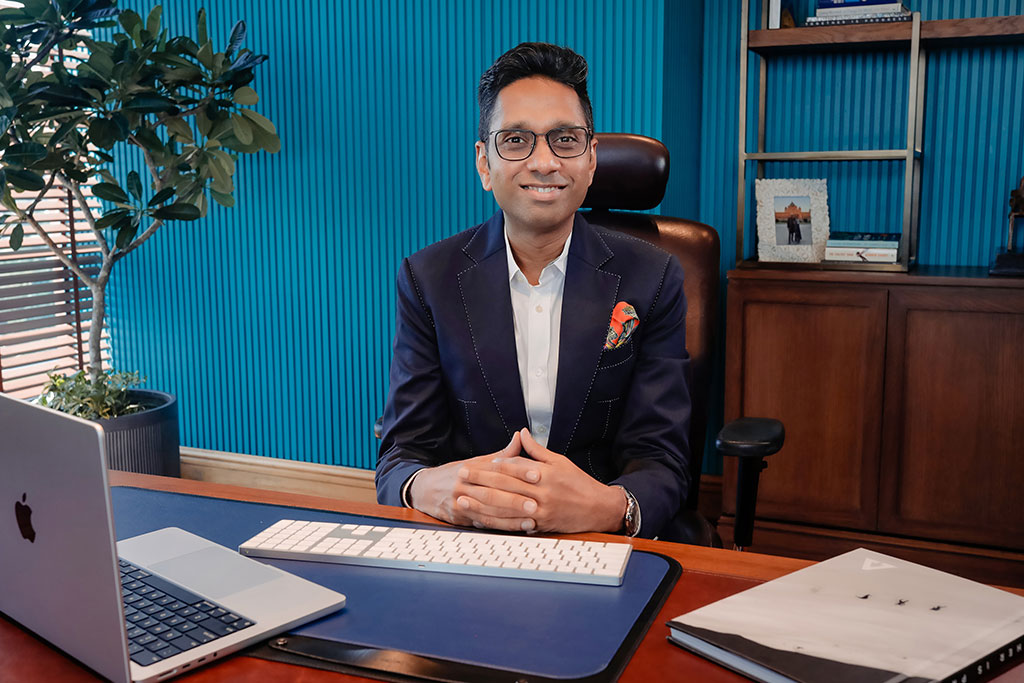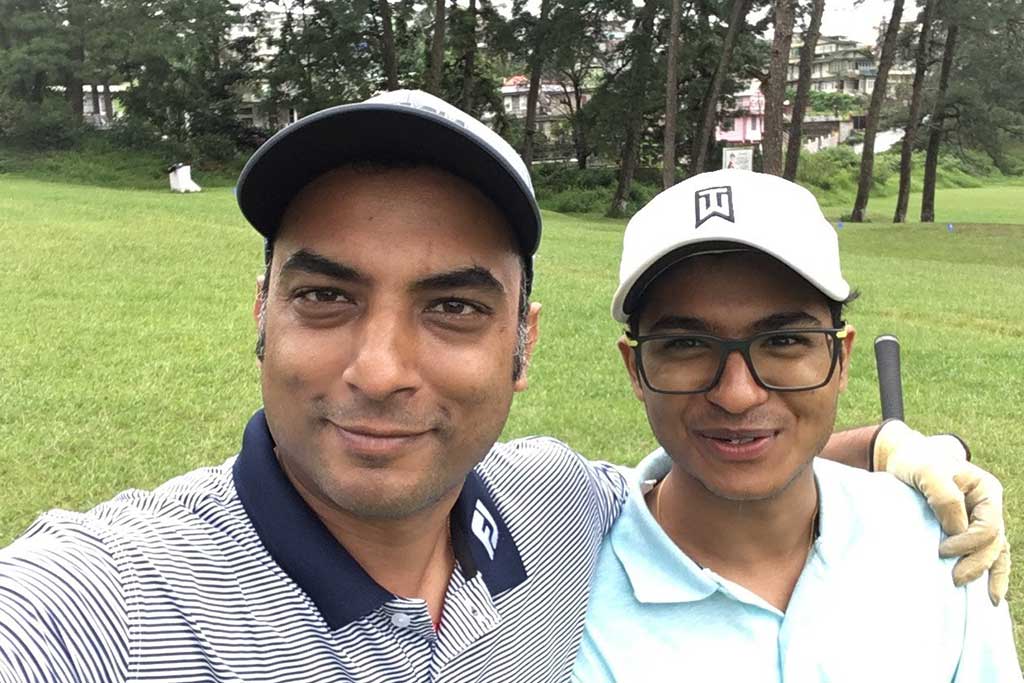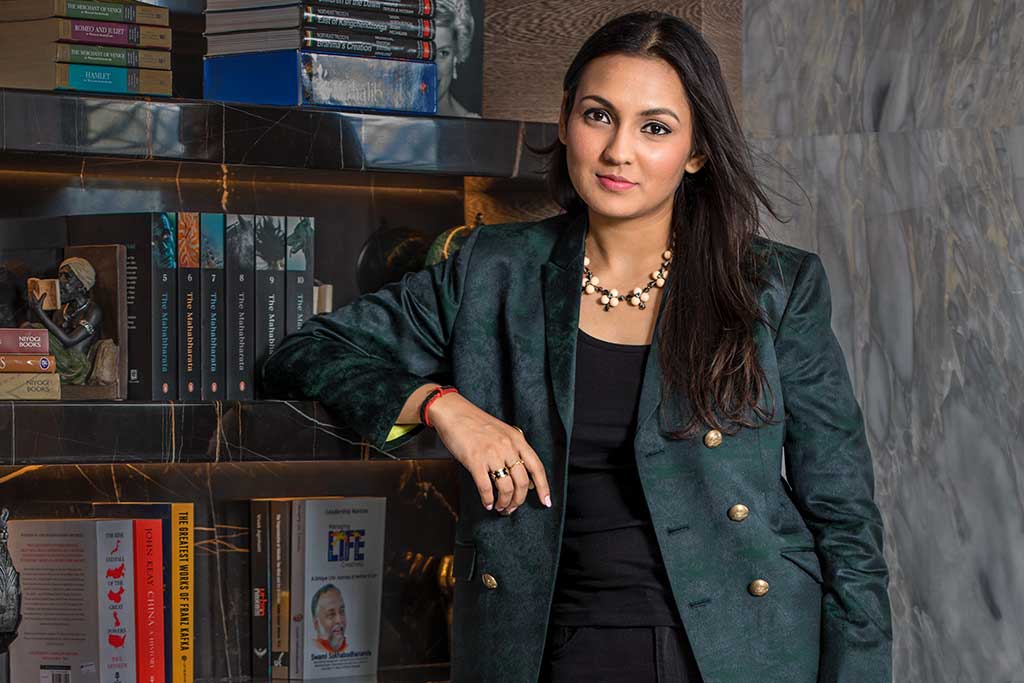Vinati Saraf Mutreja is on a mission. As the MD & CEO of Vinati Organics Limited—a R2,100 crore speciality chemicals company and world’s largest manufacturer of IBB and ATBS components—she drove her father's business to greater heights and proved that women can rise to the top in a man’s world.
Vinati Saraf Mutreja is a symbol of unwavering grit and determination, and a source of inspiration for all. Her smart business acumen and new-age aggression drove her father’s company to the top in the business of manufacturing speciality chemicals and organic intermediaries. Ever since she joined in 2006 as a secondgeneration entrepreneur, Vinati Organics Limited (VOL) grew from being a single product manufacturer to an integrated business, offering a wide range of products to top-brass industrial and chemical companies across US, Europe and Asia. In the past five years, VOL has seen 2.2X growth in its stock price, with a sustained market presence and a strong foothold in more than 35 countries. From being a Rs.60 crore organisation, it has grown exponentially into a Rs.2,100 crore specialty chemicals giant today. In the financial year 2023, the firm’s revenue was a whopping Rs.2,157 crore.
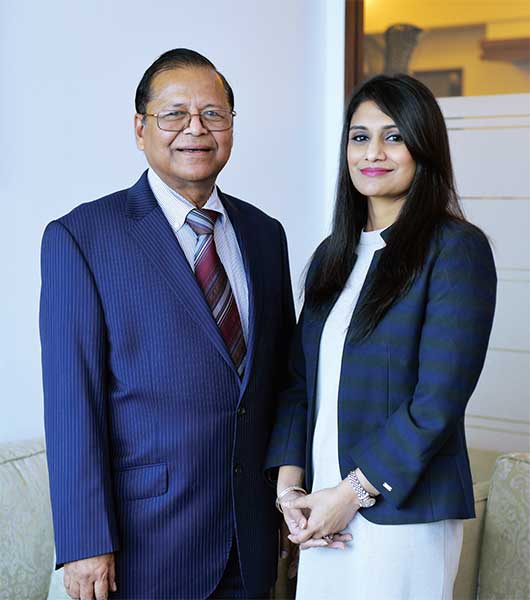
We met Vinati Saraf Mutreja at her company’s corporate office in BKC, Mumbai. Dressed in a crisp black salwar suit with her multi-coloured dupatta, the 40-yearold business leader spoke with grace and humility about her company’s journey, diversified portfolio and business learnings from her father.
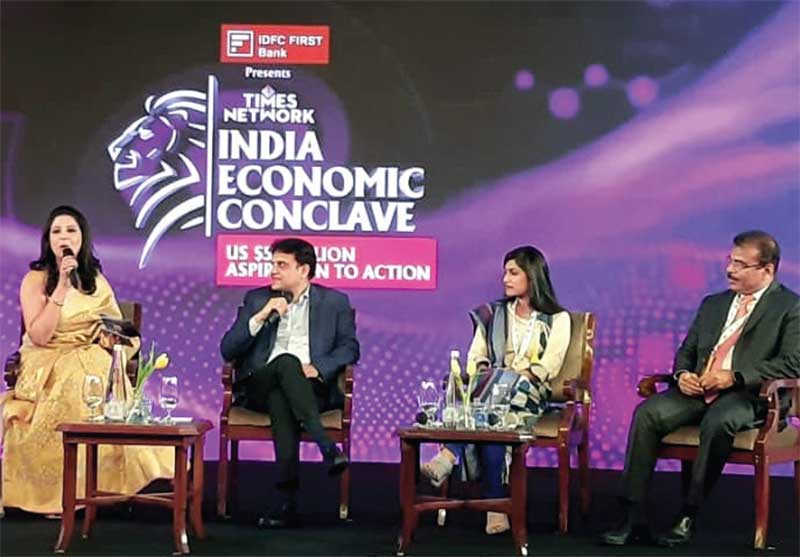
The beginning of a journey
Vinati Organics was established by Fatehpur-born Vinod Banwarilal Saraf in 1989 and named after his six-year-old daughter, Vinati. Being a child prodigy, Saraf completed his B.Com at 17 years and MBA from BITS Pilani at 19 years as a topper. He worked for Rajasthan Spinning & Textile Industry and Modern Group before moving to Mumbai in 1984 to join the Aditya Birla Group. As a part of a team that scouted for new opportunities for MRPL (Mangalore Refinery Pvt. Ltd.), he gained tremendous exposure in the chemical industry.
In 1989, Saraf quit his high-profile job as by then he had developed an interest in entrepreneurship. He came across IBB or Isobutyl Benzene—an ingredient which no company was manufacturing in India. He obtained the manufacturing technology from a French institute and acquired a loan from the Technology Development Board and ICICI Bank and also raised money through equity markets. In 1990, he listed Vinati Organics Limited to fund his project and over time, he bought back his own shares. That’s how Vinati Organics Limited was established to manufacture IBB, a raw material for Ibuprofen painkillers. “I was six years old back then and used to visit my father’s factory in Mahad, hardly knowing that I would grow up to join the company. As a child, it was like a weekend getaway for me as it would take 5-6 hours to reach the place that was surrounded by greenery on the outskirts of Mumbai,” recalls Mutreja.
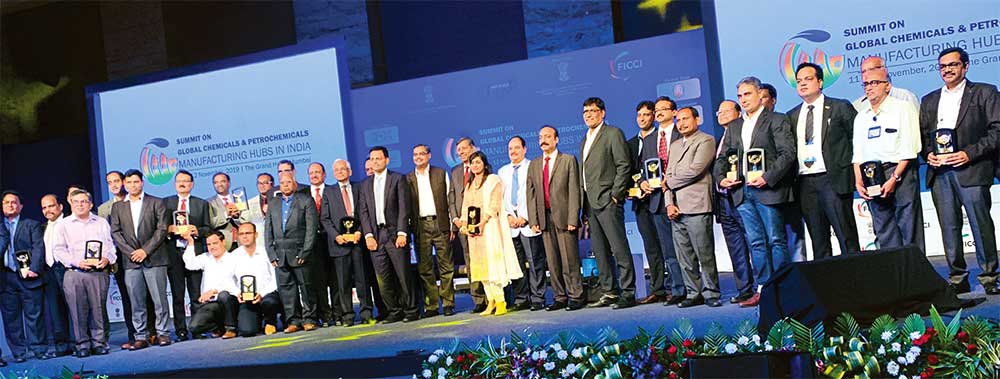
A flair for business
Mutreja spent her childhood years in a joint family in a Mumbai suburb. “Wehad a grounded upbringing and the emphasis was always on studies. I didn’t have any exposure to the business, but I knew what we were making,” she affirms. To gain knowledge in the subject, her father would constantly quiz her about chemistry equations from her study material and that led to her interest in chemistry. After completing her schooling in Mumbai she joined The Wharton School at the University of Pennsylvania, US, in 2001. Following that, she studied for a Bachelor in Applied Science degree from the School of Engineering and also completed the Owner/President Management program from Harvard Business School.
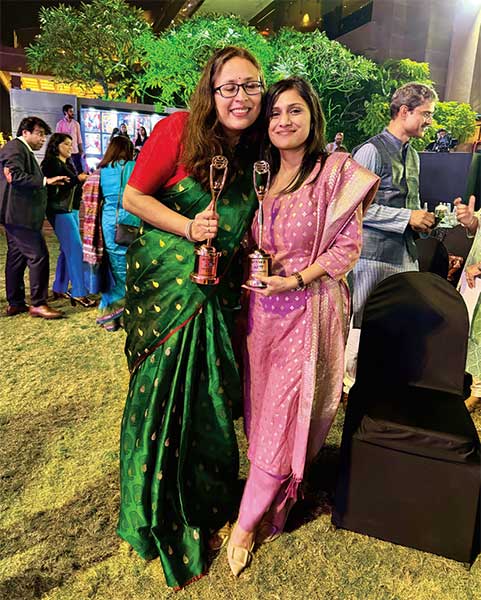
Meanwhile after a decade of being in the business, VOL was only manufacturing IBB and selling in the domestic market. In 2002, Saraf planned to get into another product ATBS—a versatile and unique alkyl acrylamide monomer—which was fully export oriented. He then started visiting the US to explore potential customers in New Jersey and Philadelphia. “I remember, my father would visit me in the college during his business trips and sometimes take me for his meetings too. That’s when my real exposure to the business happened and I gained the understanding that there is potential in the business. By the time I graduated in 2005, I knew I would join the company,” says the entrepreneur.
Being her father’s daughter, Mutreja had the flair in her to do business and joined the company in 2006. “Business was in my blood, and I had the basic understanding and edge. My education in engineering helped and the business made me prudent in managing finances. Also, it was all about being at the right place at the right time. I was only 22 back then and took it as a learning phase. I looked upon my father as my mentor. For the first time, we were working together, and both were listening to each other,” she adds.
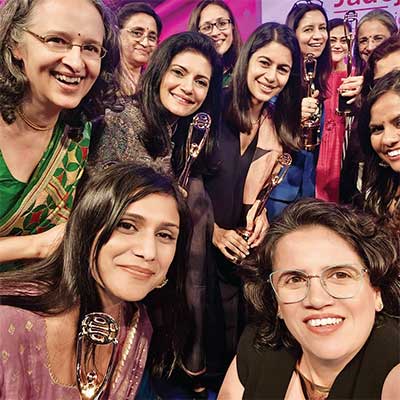
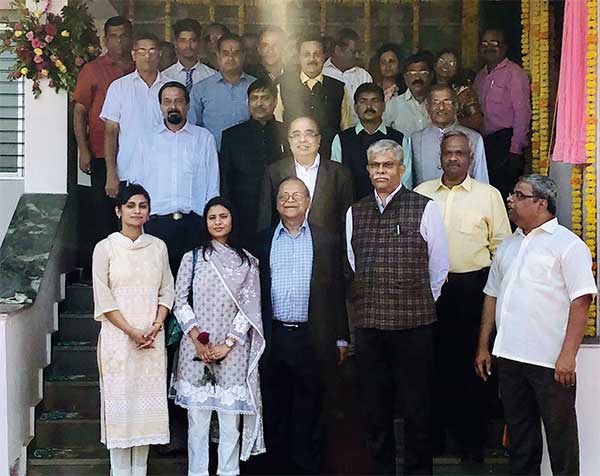
A diversified, synergic and bigger portfolio
Ibuprofen being a generic drug, the VOL business was moderately steady but the growth ticker was ATBS—a fully export-oriented product. It showed great promise due to its multiple uses in water treatment, oil recovery, diapers, personal care like hydrogels, etc. “Initially, we were not achieving the right quality, and our product was getting rejected. To address the quality aspect, we focussed on the R&D and attained efficiency in process and production.
This in turn gave VOL the foundation to script a glorious turnaround from hitherto loss-making unit of ATBS to becoming the world’s largest in the same product. The ATBS demand boomed from 100 tonnes to 45,000 tonnes and kept expanding. It led to our exponential growth and the company witnessed an expansion in its product portfolio and export business,” elucidates the chemical connoisseur.
The turning point came in 2006 when VOL not only secured a long-term contract for IBB but also the same year Vinati Saraf took ATBS to the world market, thus paving the way to becoming the largest manufacturer in both IBB and ATBS. This doubled the volume of the business as the products were now being exported to US, Germany, France, UK, Spain, China, Japan, Australia, Korea, Thailand and Taiwan. “It was a combination of my father’s experience and knowledge and my business insights. Of course, the growth in the Indian economy helped,” says Mutreja, shedding light on the growth trajectory.
VOL is one of the biggest players in ATBS in the world. “We have become a growth chain in the last five years. Along with IBB, we are manufacturing other niche products of high value with the same patented technology. In 2010, we started manufacturing Isobutylene (raw material for ATBS), and, with time, became the largest producers of Isobutylene in India. This opened our doors to other products such as butyl phenols used in fragrances, plastics, resins, and antioxidants,” she explains.
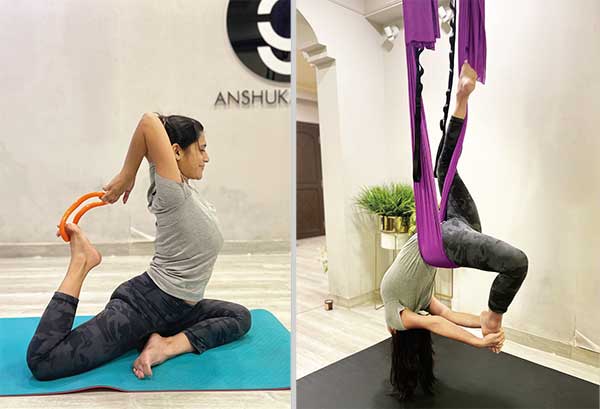
Rooted for success
From Rs.60 crore revenue in 2006 to a whopping Rs.2100 crore, VOL’s business has grown with a market capitalisation of Rs.18,700 crore in 2024. The company has come a long way, and grown through internal accruals and no debt obligation. “In the last decade, we grew our revenue and profitability manifold thereby creating immense shareholder wealth.
What makes it even more special is that this growth has been delivered alongside sustainability, good governance, lower attrition rate in the industry and being regarded as partners by our customers in their growth story,” says the CEO with pride.
VOL has set a benchmark in purity standards. To bring about a sustainable difference, it invests in technologies and enables it to develop ‘green chemistry’. “My father has this philosophy of zero waste. Whatever waste comes out, we try to add value to that. In the case of IBB or ATBS too, we make polymers out of the waste stream that are further used in the leather industry. Fifty per cent of our energy requirement comes from captive solar plant with low carbon emission.” Its commitment to sustainable practices led to VOL receiving the EcoVadis rating for the last four years. It has also won the CFO award for being the best financially managed mid-cap company.
Mutreja agrees that there have been plenty of challenges in the journey. “In any industry, the market’s global dynamics plays a big role. The life cycles of businesses have shortened. From conceptualisation, it takes five years till you start making profits. Feedstock is expensive, infrastructure is not so good, power and logistics are expensive. But the biggest advantage is that labour is cheap in India,” she asserts.
Like father like daughter
Mutreja has learnt some work tactics from her father. “Work is his hobby and he comes to the office daily. He taught us to value and trust people in the organisation and give them accountability. He believes, if employees make a mistake, it is good to accept and move on. His leadership skills and the respect people have for him in the organisation is something that every CEO strives for. He also addresses people with respect and has passed on the values to me and my younger sister who heads and champions the CSR department of the company. He taught us to stay humble and grounded. Of course, we have our generational differences. He is cost sensitive, unlike me—probably because my generation has seen more and believes in spending more,” she smiles.

Hers was a life journey shaped by plenty of influences, as Mutreja points out, “My parents taught us not to take things too seriously, and spend time with family. My mother always encouraged me to do something beyond my realm. My husband Mohit Mutreja, who comes froma a Punjabi family and runs his own hedge afund business, encouraged me to go back to work after the birth of our kids (son aged 12 years, and daughter 8). My in-laws are very supportive. My mother-in-law is a adoctor and understands the importance of work. Overall, it becomes easy if you have the support of people that are mostimportant to you.”
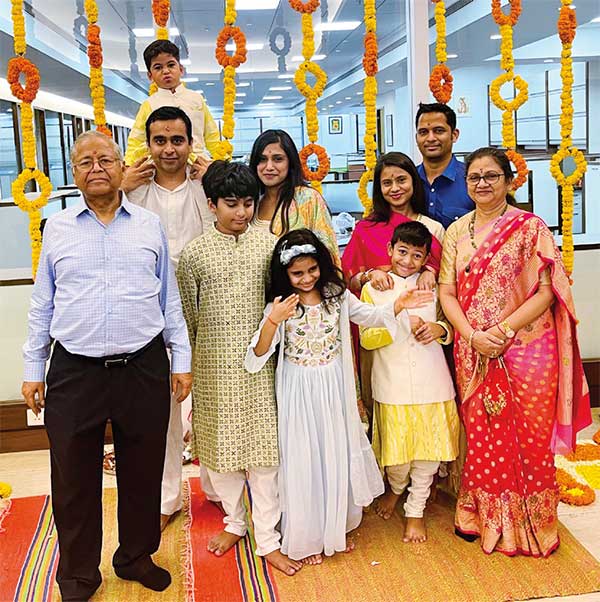
Leading with passion
Belonging to an industry that is largely male-dominated, Mutreja believes that women have broken the gender barrier. “Gender doesn’t matter in my industry. Our Board of Directors comprises 50 per cent women. As long as you understand your product, it doesn’t matter whether you are a man or woman. The only disadvantage we have is that of being young, as then it gets difficult for people to take you seriously. Indeed, being a woman, you have the advantage of standing out and people paying attention to you. So accept it and use it to your advantage,” she asserts.
As a woman boss, Mutreja has her leadership strategy well in place. “I have an open-door policy and am totally accessible in the office. I listen to everyone, take their opinion, give respect, and acknowledge that there are people who have more experience than me.”
As her concluding statement, she says, “The biggest award for an entrepreneur is to keep doing your work, have the best product and price, keep growing and diversifying, add niches, look for synergies, and then your business is sure to double up every five years.”
Recent Posts
Discover Your Perfect Honeymoon in the Maldives
For Indian couples embarking on their journey of togetherness, the Maldives has long held an almost mythical allure - a tapestry of turquoise
Jewels Fit For Generations : The Nemichand Bamalwa Story
Since 1987, Nemichand Bamalwa Jewellers has been more than just a name; it is a legacy of trust, craftsmanship, and innovation.
Welcome to "What's Your Plan?"
This vibrant social hub by DJRS Hospitality blends chic vibes with gourmet bites,
Rajasthan’s Crafty Fashion Takeover
Rajasthan, India’s desert jewel, is a repository of exquisite and time-honoured crafts.
‘Mercii’ Beaucoup, Mumbai!
Stepping into Mercii at 81 Crest, Khar, feels like entering a world where gratitude is plated with every exquisite bite.
Game. Set. Watch: Omega Celebrates Smriti Mehra
Luxury Watch Boutique Time Avenue, Mumbai, in collaboration with Omega, hosted a special event to honour none other than Smriti “Simi” Mehra,
Sand, Sea & Sky - High Thrills
Whether you’re soaking in serene natural beauty or diving into extravagant fun, the UAE offers the perfect setting for an unforgettable family getaway.
Dr. Anuja Luniya Shows You How to Stress Less, Live More
Meet Dr. Anuja Luniya, physiotherapist by degree, stress strategist by passion, and your go-to guru for turning everyday chaos into calm.
Breitling's 140th-Anniversary Vintage Watch Exhibition: An Unmissable Showcase
The Breitling Heritage Exhibition, a remarkable showcase of the brand’s most iconic timepieces from its 140-year history, has been on an extensive global tour with 55 stops across four continents.
Dawn to Dusk with Sidhart Pansari: Steering Primarc's Legacy into the Future
We follow the dynamic director of the fastascendant Primarc Group
4 Perfect Getaway Resorts Near Mumbai
For those looking to break away from the urban bustle, India's hidden nature
48 Hours In Canberra
Canberra is a vibrant city with a rich culture, awe-inspiring natural landscapes, adventure-filed activities, and hospitable locals.
Understated Power
In the charming town of Shillong, Meghalaya, golf is more than just a game—it's a family affair for Gaurav and Lakshya Bajaj.
Understated Power
The Lexus LX500d is a rare sight on the roads, and this exclusivity is where its distinctive charms resides.
The Money Manager
Engaging young, ambitious, tech-savvy successors to manage family wealth is a rising global need among the super-rich.

